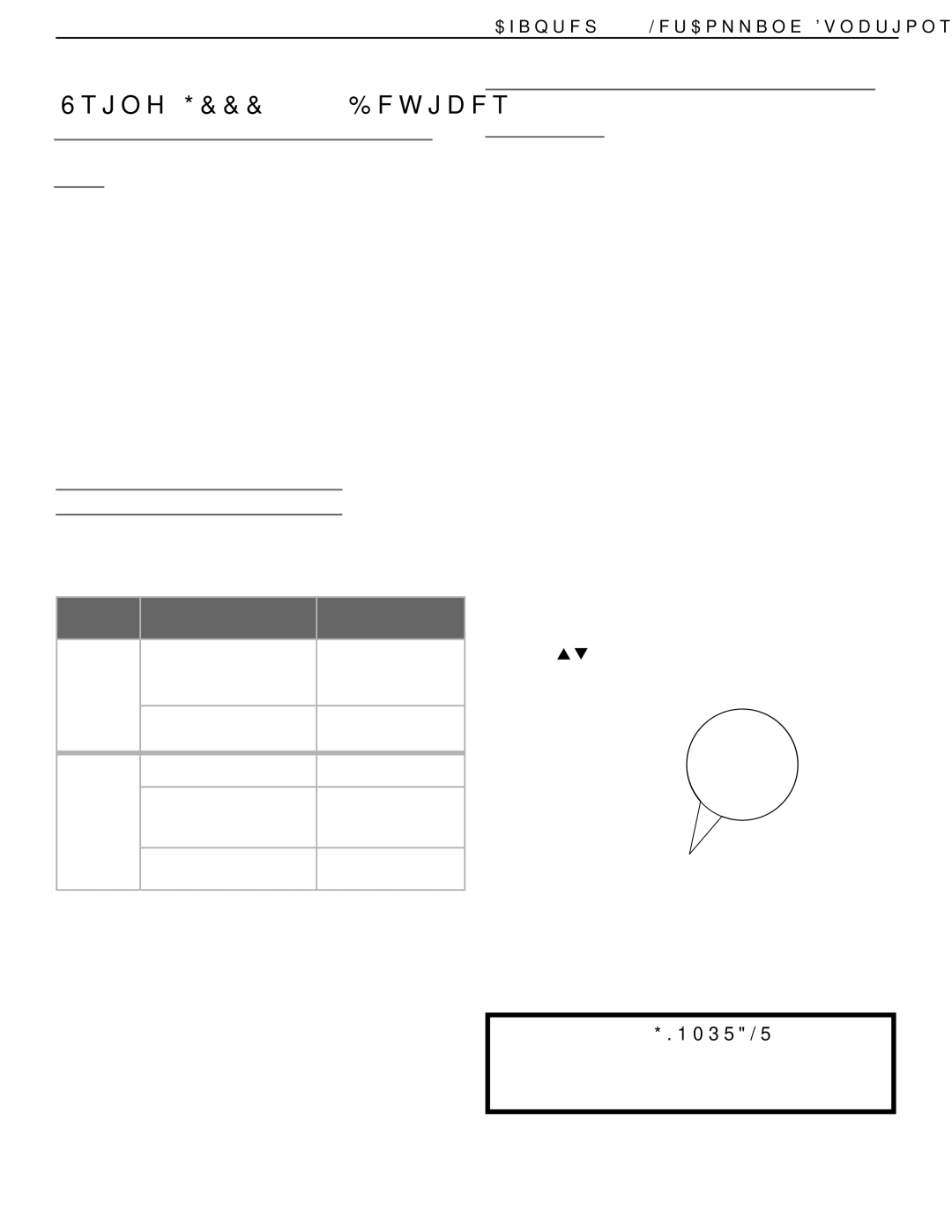
Chapter 6. NetCommand Functions | 83 |
Using IEEE 1394 Devices
IEEE 1394 Devices and the Input Selection Menu
When you connect an IEEE 1394 device to the TV network and power it on, the new device is automatically detected. Some
Some devices may be a combination of two or more types of devices, such as a recording device that is also a tuning device. Each portion of the device is called a
When you select a device on the Input Selection menu that has
Recording to IEEE 1394 Devices
You can use the TV to control recording to IEEE 1394 devices. The following table lets you see what signals can be recorded to an IEEE 1394 digital VCR or A/V disc.
Recording | Signal Type | TV Input | |
Availability | |||
|
|
| |
Can be | Digital channels, includ- | ANT 1, ANT 2 | |
recorded | ing |
| |
| channels |
| |
|
|
| |
| Digital signals, including | IEEE 1394 devices | |
|
| ||
|
|
| |
Cannot be | Analog channels | ANT 1, ANT 2 | |
recorded |
|
| |
Analog signals | INPUT | ||
| |||
|
| COMPONENT | |
|
| inputs | |
|
|
| |
| Digital signals | HDMI 1 and 2, | |
|
| ||
|
|
|
Summary of signal inputs and recording to an IEEE 1394 digital VCR or A/V disc.
Switching Between Analog and Digital IEEE 1394 Outputs
To enable switching between analog and digital outputs, you must have check marked the Analog Connection box when the New 1394 Device screen displayed when you first connected the device. See chapter 3, “TV Setup.”
Figure 7. The ClearThought Auto Input sensing screen for IEEE 1394 devices. Place a check in the Analog Connection box if your device has both analog and digital outputs.
1.Press INPUT to display the Input Selection menu.
2.Highlight the icon for the IEEE 1394 device and press
ENTER.
3.Press ![]()
![]() to switch between icons representing the analog and digital outputs of the device. See figure 8.
to switch between icons representing the analog and digital outputs of the device. See figure 8.
Figure 8. The Input Selection menu shows icons for the analog and digital outputs of the IEEE 1394 device.
4. Press ENTER again to select the device.
IMPORTANT
To add an analog connection to an existing IEEE 1394 device, use the 1394
